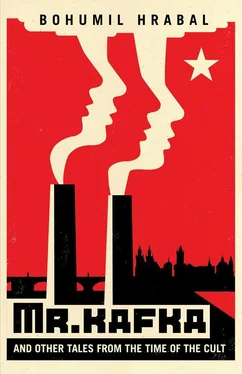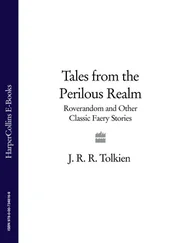The Prince knelt over that lovely head of hair, but as he bent down, he fell over on his hands. For a moment he remained on all fours, then sank in a heap on the road and rolled onto his back, gazing at the sky, while the stars spun around like a tree in full blossom. He rolled over on his side, righted himself unsteadily, and felt burning alcoholic bile seep from his stomach into his mouth.
“I’ve got nowhere to sleep,” the girl wailed.
“We can put you up,” said the Prince. He crawled toward the prone figure, pushed her hair aside, then sat up and fumbled in his pocket for matches. He found them, but each time he struck one it went out. Finally he managed to ignite a sheaf of four together, and he could see her face in the flare. Her eyes were open, and when she turned toward him he could see a long scar running across her forehead, jumping her eyebrow, continuing down her cheek, and ending at her mouth.
“When I was little I had a pony,” she said, “but no one believed it was mine.”
“I believe you,” said the Prince, and he stood up, quickly planting his legs apart to keep from falling over again.
The girl sat up, got to her knees and then to her feet, wavering unsteadily.
“They don’t know what to do with me… my endocrine system… it’s like I’ve got a chest full of jelly… they keep giving me injections,” she said, struggling out of her coat.
The Prince took a step, lurched forward a few paces, then stopped, his legs apart.
“First we got these b-b-bubbly little sores on our skin,” she said and started walking after the Prince, dragging her coat in the dust by one sleeve. “See, I’m working with really toxic stuff now. .. I package iodine salts. I’m covered in it.” She pushed her hair back with her hand, looking up at the sky and making a circle above her head with her arm. “I’m covered in sores, like the sky.”
She set off at a trot, got ahead of the Prince, then stopped and turned to face him.
“Where do they get all this stuff?” complained the merchant. “So long after the war and still so much scrap.”
“Just so there’s no doubt about it,” the doctor continued, “the Jews nailed it down: Freud in quackery and art, Einstein in physics. Two more specialists, but masters of detail this time, microcosms. A foursome of brilliant Jews, and the entire world stands on their shoulders. The rest is all just warming up the soup and watering down the vodka.”
He took a pitch fork and began heaving things straight from the wagon into the hoppers next to it: chains, rusty ploughshares, yokes, sugar beet hoes, seed boxes, and tubes from planting machines.
“What about America, eh?” yelled the merchant.
“Oh, right, America,” said the doctor. “They’re sitting pretty now that Morgenthau and Baruch are on the Atomic Commission, and all they did was dither until the Russians got the bomb too, thank God.”
“But the Americans have more bombs,” said the merchant.
“That’s for sure, they do have more,” the doctor nodded, “but that cow, Peroutková, really got up my nose when she said that the Americans bombing Prague at the end of the war was just a teensy little foretaste, and that this time around it would be a different kettle of fish. Listen here, Peroutková, you silly cow, fuck your Radio Free Europe, because what kind of a life will I have if you blow it to smithereens?”
He raised a finger and just where he was pointing — beyond the piles of old war material, where the domes of the blast furnaces towered over the landscape — he could see four silver streams of water shooting into the air, showering the furnaces as if they were taking part in a fire drill or a training exercise at the firefighting academy. A cloud of blue and pink steam poured off the furnace walls, then quickly dissipated and was lost against the blue summer sky.
“Any chance of a smoke?” she asked.
The Prince staggered to his feet and steadied himself while he patted and poked about in his pockets; then he sullenly handed her a pack of cigarettes. When he struck a match, the girl leaned over the flame and her hair fell around it as though she were inhaling it. She smoked hungrily and the ember glowed in the dark, illuminating her face through her hair. She broke into a stumbling run, as if driven forward by the alcohol, then she had to slow down while the Prince trudged after her, fighting an urge to run backwards, as though someone were dragging him to a place he didn’t want to go. They climbed a narrow pathway beside a ditch carrying wastewater from the mine. On the hilltop, they were dumping slag that cast a red glow and blue shadows over the landscape. The girl’s hair shone like pink cotton candy. The Prince lit her another cigarette.
“That’s quite a scar you’ve got on your kisser,” he said, walking along the edge of the ditch.
“There was this craaaazy family back home,” she said, and ran several yards ahead of him, then she turned and went on. “They called themselves the Colorados and claimed they were nobility, but all they had was this little shop. .. When they’d go to the district fair they’d ask the railway to add on a saloon car, just for them. .. One of them was truly in-in-insane and when I was a little girl I’d ride my pony and tease him by calling him Count Colorado!”
The girl was shouting, but the landscape was silent now. A baby carriage was approaching down the path with a small, bright blanket inside it. As it passed them, the Prince saw that the woman pushing it was in tears. Wrapped inside the blanket was a whimpering little dog.
“What’s up, Mum… what… what happened?” he asked, steadying himself again.
“My little Haryk got hit by a car, poor dear,” the woman said as she passed by. “I’m taking him to the doctor’s.”
“Count Colorado!” the girl shouted, waving her crumpled overcoat. “He was a madman. Once he came after me with a scythe and whacked the p-pony’s hind legs with it, and I fell off into a patch of nettles, and as he was backing away, he didn’t see me and ran the tip of his scythe across my face.” The girl yawned and started running again, stumbling over her coat.
The professor of philosophy climbed into the wagon, handing the merchant the scorched components of a grain hopper, a drum separator, sifting machines, a grain sorter, and a device for whipping cream.
“Looks like a mill must have burned down somewhere, eh?” Bárta said, tossing the items into the hopper.
“All our good old golden days are being smelted down, and you don’t even know it’s happening,” said the doctor. “This age we live in has stunned you like a calf in a slaughter house, and what are you doing? You’re tossing into the furnace the very things, the very means of production, that created your class in the first place… and you’re completely unaware of it.”
“But the world won’t just leave it at that,” laughed the merchant. “Look at Iran — they’re fighting back tooth and nail.”
“Iran?” asked the doctor.
“Yeah, Iran.”
“You’re mistaken,” said the doctor. “You mean Iraq.”
“No, I listen to Radio Free Europe — Iran.”
“Look here,” said the doctor, “they’re all pricks and pissants but there’s still a huge goddamn difference between Iran and Iraq. However, my friend, the Russians are here, and that’s what matters. They’ve always had good chess masters, bass players, weight lifters, wrestlers, speed skaters and foreign policy.”
And the doctor set an ice-cream maker and a meat grinder on his apron-covered knee. With gloved hands, he picked up a meat chopper, some ladles, a cylinder head from a compressor, a slaughter-house stun gun, some bone splitters and turning hooks, and he carried them to the edge of the wagon, where Bárta took them and tossed them into the waiting hoppers.
Читать дальше












